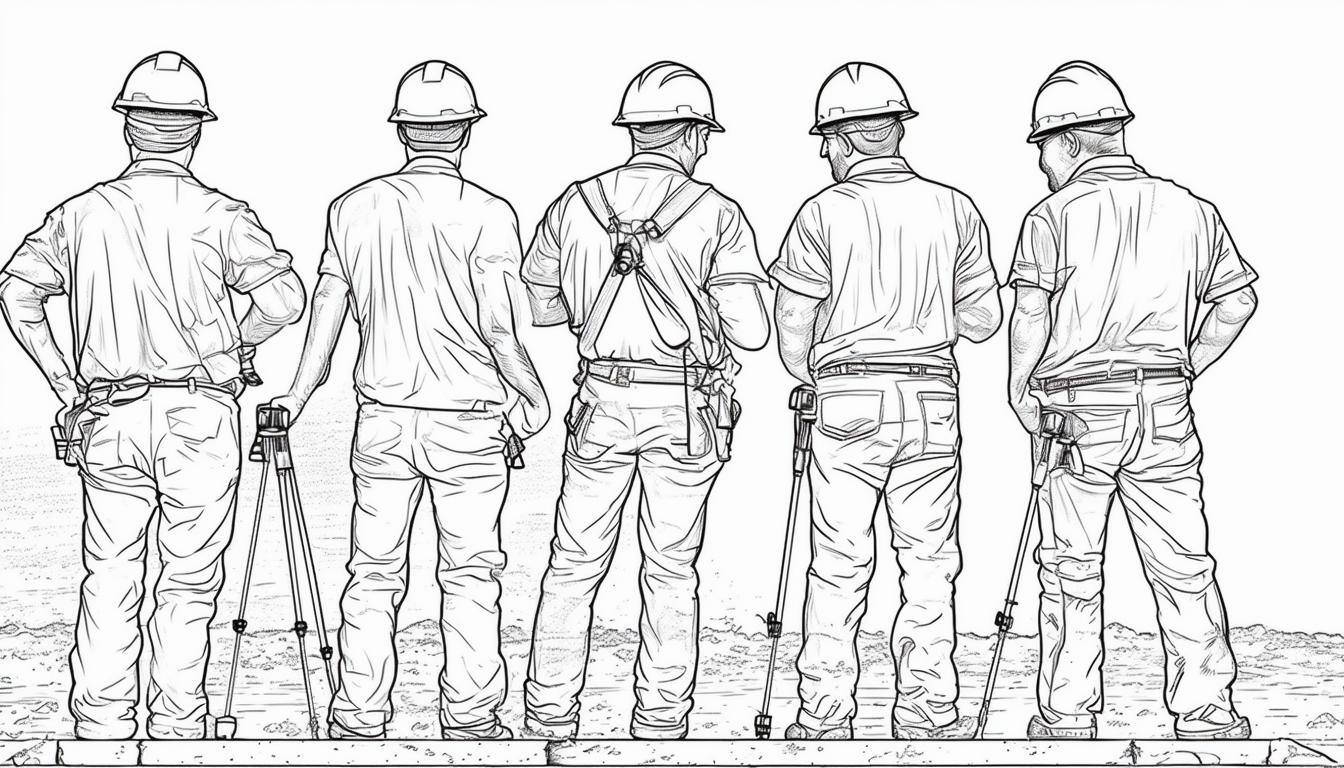Introduction In the world of land surveying, technical expertise is crucial, but so are strong...
Building a Team for Land Surveying Success
Introduction
In the world of land surveying, your team's capabilities are just as important as your service offerings when it comes to driving business success. A skilled, motivated, and cohesive team is the foundation of any successful surveying business. By hiring the right people, investing in their training, and creating a positive work environment, you can ensure that your company is equipped to handle diverse projects and consistently deliver high-quality results. In this blog post, we’ll discuss how to build and maintain a strong team that supports your company’s growth.

Hiring for the Right Skills and Culture Fit
Building a strong team starts with hiring the right people. In land surveying, technical skills are crucial, but finding candidates who are also a good cultural fit is just as important. Here are some tips for hiring effectively:
-
Define the Skills Needed: Clearly define the skills and qualifications required for each position. Whether it's expertise in GPS technology, experience in boundary surveys, or knowledge of GIS, having a well-defined list of qualifications will help you attract the right candidates.
-
Look for Adaptability: The land surveying industry is constantly evolving, and having a team that can adapt to changes is essential. Look for candidates who demonstrate a willingness to learn and adapt to new technologies or methodologies.
-
Assess Culture Fit: Technical skills can be taught, but culture fit is harder to change. Hire people who align with your company’s values and work well in a team environment. A cohesive team is more productive and delivers better results.
Ongoing Training and Development
To stay competitive, your team needs to stay up-to-date with the latest industry practices and technologies. Investing in ongoing training and development not only enhances your team’s skills but also keeps them motivated and engaged:
-
Provide Access to Industry Certifications: Encourage your team members to pursue relevant certifications, such as Certified Survey Technician (CST) or GIS certifications. Supporting their professional development shows that you’re invested in their growth.
-
Host In-House Training Sessions: Regular training sessions can help your team stay current with the latest tools and techniques. Whether it’s training on new software or best practices for safety in the field, continuous learning is key to maintaining a skilled team.
-
Encourage Cross-Training: Cross-training team members in different areas of surveying helps build a more versatile team. This allows your business to take on a wider variety of projects without always needing to hire additional staff.
Creating a Positive Work Environment
A motivated and engaged team is one that feels valued and supported. Creating a positive work environment is essential for retaining talented employees and fostering productivity:
-
Recognize and Reward Achievements: Recognize your team’s hard work and celebrate successes. Whether it’s completing a challenging project or obtaining a new certification, acknowledging achievements boosts morale and encourages continued effort.
-
Promote Work-Life Balance: Land surveying often involves long hours and fieldwork, so promoting work-life balance is crucial. Encourage flexible work schedules and ensure that your team has time to recharge, which helps prevent burnout.
-
Foster Open Communication: Create an environment where team members feel comfortable sharing their ideas and concerns. Open communication fosters collaboration and helps resolve issues before they become major problems.
Aligning Team Strength with Business Goals
Building a strong team isn’t just about hiring and training—it’s also about aligning your team’s skills and motivation with your business goals:
-
Set Clear Expectations: Make sure each team member understands their role and how their work contributes to the overall success of the business. Clear expectations help align individual efforts with business objectives.
-
Encourage Team Specialization: While cross-training is valuable, allowing team members to specialize in certain areas can improve efficiency and quality. Specialization allows individuals to become experts in their field, providing a higher level of service to your clients.
-
Support Collaboration: Encourage teamwork across departments. Whether it’s field crews working with GIS analysts or surveyors collaborating with project managers, strong communication and teamwork help ensure that projects run smoothly and efficiently.
Real-World Example
Consider a land surveying firm that struggled with high turnover and inconsistent project quality. By investing in team-building initiatives, ongoing training, and recognizing employee achievements, they were able to reduce turnover and improve project outcomes. This shift not only improved morale but also led to higher client satisfaction and repeat business.
Key Benefits of Building a Strong Team
-
Enhanced Service Quality: A well-trained and motivated team delivers higher quality results, ensuring client satisfaction.
-
Increased Productivity: Employees who feel supported and valued are more productive, helping your business complete projects more efficiently.
-
Better Retention: Creating a positive work environment helps retain top talent, reducing turnover and the costs associated with hiring and training new employees.
Conclusion
A strong and motivated team is at the heart of every successful land surveying business. By hiring the right people, investing in their development, and creating a positive and supportive work environment, you can ensure your team is prepared to meet the challenges of the industry. A cohesive, skilled team not only improves the quality of your services but also drives business growth and client satisfaction.



